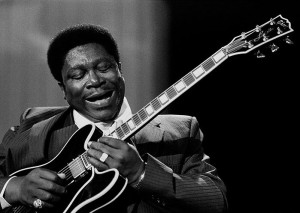
Note: A couple of days ago we lost one of the all time great American Blues icons when B.B. King passed away at the age of 89 in Las Vegas. Rightly known as “The King of the Blues”, if there ever was an ambassador for the Blues, B.B. King was it. More than any other artist he popularized the genre and directly influenced many of the younger crop of Blues artists currently performing, as well as many of the older classic rock and Blues musicians such as Eric Clapton and Keith Richards. B.B. King’s loss will be deeply felt by Blues fans everywhere for a long time, and it is in honor of him and his massive contribution to Blues music, that I am publishing this article, “The Blues and Beyond”, my personal story of how I came to love the Blues and Jazz. Thank you B.B. King! You will be, forever and always, “The King of the Blues!” MA
Back in the summer of 1992 I was convalescing from a surgery and found myself with some free time—an unusual situation for me. I spent that time in various ways, one of which was catching up with old friends. On one Sunday afternoon I paid a visit to an old pal who happened to love music and who was a big Blues fan. On many earlier occasions when I saw him he would tell me of various Blues artists and albums he liked, and I would listen to him with mild interest. This particular afternoon was no different, and talk of Blues music dominated our conversation, interspersed with selected cuts he played for me on his stereo. We were having a good time.
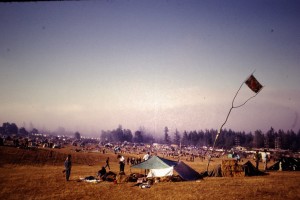
Twenty years before, in the early ‘70s, I too had been a music buff. Back then I had invested in a quality stereo system and had developed quite a large record collection spanning the Folk, Folk Rock, Rock and Soul genres. I was a big Jimi Hendrix fan and loved the music of Bob Dylan, The Beatles, Eric Clapton, Cream, and The Rolling Stones. I had seen The Who live at the Seattle Coliseum as well as Neil Young and David Crosby. I was a big Crosby, Stills, Nash and Young fan and I had boogied with the best of them to Jesse Colin Young and The Youngbloods at the Sky River Rock Festivals, [1]and to Alvin Lee and Ten Years After at Seattle’s famous Rock venue The Paramount Theatre. I had once theorized that there were three great influences on the Rock music scene of the sixties—Bob Dylan, The Beatles and Jimi Hendrix. Dylan had captured the collective heart and soul of a generation with his protest songs of the folk era in the early sixties; and then literally set that world on its ear when he electrified and went “rock” with several stunning albums in the mid sixties. The Beatles hit the big time in 1963 with a series of number one hits including “I Want to Hold Your Hand” and “She Loves You,” both of which still set my toe to tapping when I hear them; but The Beatles were just getting started and John Lennon and Paul McCartney penned and recorded many other hits across the next 7 years. Thus was launched what is now called the British invasion, which opened the door for bands like The Rolling Stones, Cream, The Animals, The Who and The Kinks to gain wide acceptance in America. Oddly, Jimi Hendrix, who grew up right here in the Seattle area, was an American who had to go to England to gain stature and refine his style before returning as part of this invasion—and what a return he had! On songs such as “Purple Haze”, “Foxy Lady” and “Crosstown Traffic” he did things with an electric guitar that none of us had ever heard before. In 1968 he released an electric version of the Bob Dylan song, “All Along the Watchtower,” which to me it is one of the great Rock songs ever recorded. I think that song is the only time anyone ever improved a Dylan song just by how they interpreted it. I did not know it then, but Jimi Hendrix was essentially a Blues player.
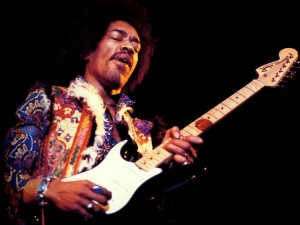
As the sixties became the seventies the world of Rock was stunned by the deaths of a number of its icons. Brian Jones of the Rolling Stones, Jim Morrison of The Doors, Janis Joplin, Duane Allman of the Allman Brothers Band and the great Jimi Hendrix all passed, mostly as the direct result of drug abuse. The creative surge unleashed by the influx of LSD and other drugs in the mid sixties was having a heartbreaking conclusion. The Psychedelic era[2] came to an end and other artists like The Eagles and Jackson Browne, and a little later Bruce Springsteen, arrived on the scene and became popular. I was particularly fond of Jackson Browne and the introspective lyrics of his songs and for a while I thought he had a chance to be to the seventies what Dylan had been to the sixties, but it didn’t happen. By 1977 I was moving in other directions and I sold my stereo equipment and all of my albums. Music, while I still enjoyed it, definitely became back burner for me. Sitting in my friend’s living room that summer day in 1992, the back burner boiled over.
I do not know why exactly, but I as I talked with my friend and listened to his Blues music on that Sunday afternoon, I really started liking what I was hearing. The beats and rhythms were simple and honest and the lyrics obviously came from the heart and soul. A few weeks later I got another inexpensive stereo system and started listening to more modern Blues artists like Stevie Ray Vaughn and Robert Cray. I bought a few of their albums and as I listened I would read the liner notes of their CDs and discover who influenced them. Stevie Ray Vaughn, for instance, was heavily influenced by Albert King. Albert King was a black Blues artist who had been playing for decades. I found out he was one of the “three Kings” of electric Blues guitar—the other two being BB King and the late, great Freddy King (To the best of my knowledge the three Kings are not related). Freddy King was a protégé of Jimmy Rogers, who was for many years the guitarist for the Muddy Waters Band. Muddy Waters (whose real name was Mckinley Morganfield) was born in Mississippi in 1915 to a family of sharecroppers. He grew up in the rural south learning his Blues chops from such legends as Son House and Robert Johnson. Muddy moved to Chicago in 1943 and literally founded what would become and is known today as the “Chicago” Blues genre. His influence is massive. For my money, however, there are two Bluesmen that the world of Blues and indeed all Rock music are indebted to. The two are Robert Johnson and T- Bone Walker.
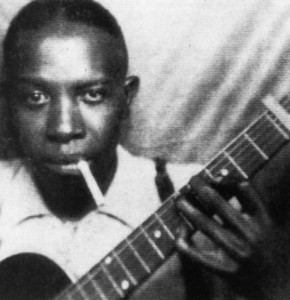
Robert Johnson is a true American and music legend. He was born in 1911 in a little town called Hazelhurst, Mississippi. The Mississippi Delta area was full of great Blues players and that is where Robert undoubtedly learned his craft—but the legend goes that he gained his incredible Blues guitar playing ability by going to the crossroads one night and selling his soul to the Devil in exchange for the ability to play the Blues. This idea was probably fed by the fact that Johnson would often practice his playing at night while leaning against a tombstone in the local cemetery. During his short life Robert Johnson hoboed all over the Delta and the South and even to Chicago and New York, playing the Blues wherever he went. He died in 1938 at the ripe old age of 27 after being poisoned by a jealous husband who gave him lye laced moonshine whiskey. Robert Johnson left us a total of 29 recorded songs. Such tunes as “Kind Hearted Woman Blues”, “Hellhound on My Trail”, “Sweet Home Chicago” and “Cross Road Blues” have reverberated down the decades and had a vast influence on future Blues and Rock performers including Eric Clapton, Keith Richards and Eric Burdon. In fact, it is not an exaggeration to say that the seeds of the sixties Rock scene were sown by Robert Johnson and those like him, who were instrumental in developing the Blues.
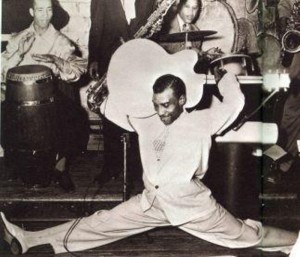
If the seeds of sixties rock were sown by Robert Johnson et al, it was T- Bone Walker who watered them. Born Aaron Thibeaux Walker in Linden, Texas in 1910, T- Bone learned his craft at the knee of another early Blues legend named Blind Lemon Jefferson. His family moved to the Oak Cliff area of Dallas, Texas when he was a child and at the age of nineteen he recorded his first record under the name “Oak Cliff T-Bone” –later contracting his name to just plain T-Bone. Legend has it that T-Bone Walker first plugged in and started playing an electric guitar in 1936. He was a great singer and showman, writing and performing many Blues standards including the ever popular “Stormy Monday Blues” which is probably the most widely recorded Blues song in history. He was the first electric Blues guitarist to perform trick playing on his guitar and as such was a big influence on Jimi Hendrix, Stevie Ray Vaughn and others. Such artists as BB King and Chuck Berry cite T-Bone Walker as perhaps the primary influence on their careers. T-Bone Walker ushered in the age of electric guitar and all Blues and Rock guitarists to follow are indebted to him. He died of pneumonia in 1975.
By the mid nineties I had listened to all of Robert Johnson’s recordings and most of those of T-Bone Walker and many other Blues artists. The shallow view that I had once had as regards the Rock and Pop scene of the sixties and seventies was forever deepened. This Blues music was the roots music; the real music of America, and I loved it. Then one day I was listening to a Frank Sinatra album I had picked up a year or two earlier—a compilation of Sinatra’s career spanning the late fifties and sixties. I had always liked Frank’s hits from the sixties like “My Way” and “That’s Life”, but beyond that I never paid much attention to him. Now I was discovering that I loved his singing.
Was I getting old, I wondered? Isn’t liking Frank Sinatra just a function of age?
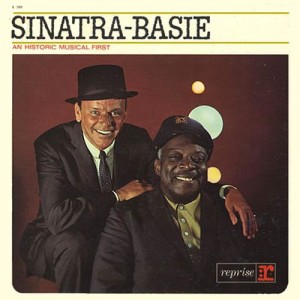
“No,” I decided. It just takes a few years to acquire good taste. I found upon listening to this album repeatedly that I really liked the songs in which Frank had a big band behind him with a really swinging tempo. I noticed that on a couple of these songs, such as “Fly Me to the Moon” and “The Best is Yet to Come” the band sounded particularly good. I looked in the liner notes to see what I could find out about the band and was surprised to see that it was the Count Basie Band backing Frank on these cuts. I had heard of Basie for sure—who hadn’t? I immediately found out everything I could about Count Basie; and thus I was introduced to that other uniquely American music form—Jazz. I listened to all the Count Basie I could find from the late thirties into the forties with his “Old Testament” band and into the fifties with singer Joe Williams and his incredible “New Testament” [3]band and on up into the sixties when he collaborated with Frank Sinatra. Along the way I plumbed the music of Duke Ellington, Ben Webster, Lester Young, Oscar Peterson, Nat King Cole and to a lesser degree Dave Brubeck, Stan Getz, Charlie Parker, Buddy Rich and many others. I learned how a young Jewish concert promoter named Norman Grantz took a stand in the late forties and provided concert venues for the black Jazz musicians of the day to perform and become popular. He went on to found Verve records and through the fifties produced many classic recordings by teaming the various Jazz greats of the time in his studio and laying down tracks. My life and the lives of countless others have been immeasurably enriched due to Grantz’s efforts as well as the musicians he promoted.
Now, don’t get me wrong, I still love the Rock music of my youth and many of these songs and artists are special to me. I still get nostalgic when I hear Scott McKenzie sing “San Francisco” on the oldies stations. But I get the deepest satisfaction from Blues and Big Band Swing and Jazz. And I wouldn’t have thought, when I was twenty, that I would have cried when Frank Sinatra died; but in 1998, when I heard the news of his passing on the radio, that is exactly what I did.
Copyright © 2015
By Mark Arnold
All Rights Reserved
[1] The Sky River Rock Festivals took place in the summer in the state of Washington across the late 60’s and early ‘70s. Essentially they were big, open air rock concerts that lasted for days and were staged on farm land in front of 10s of thousands of rock fans. I personally attended two of these festivals, the first in 1970 just outside the town of Washougal, Washington and the second in 1971 at Satsop, Washington.
[2] What is called the Psychedelic era of Rock Music was launched in the mid 1960’s with the advent of mind bending drugs like LSD into the youth culture of the time. The lyrics of many of the Rock songs of this period were influenced these drug experiences as was the sound of the songs. Classics such as “Sgt Pepper’s Lonely Hearts Club Band” by The Beatles and “The End” by The Doors are great examples of Psychedelic Rock. By the early 1970s the Psychedelic era was ending.
[3] The bands of Count Basie (born William James Basie 1904-1984) had several incarnations. His band of the swing era of the late ‘30s and 1940’s when he made his name was known as Basie’s “Old Testament” band. His band of the 1950’s into the ‘60s was called his “New Testament” band.

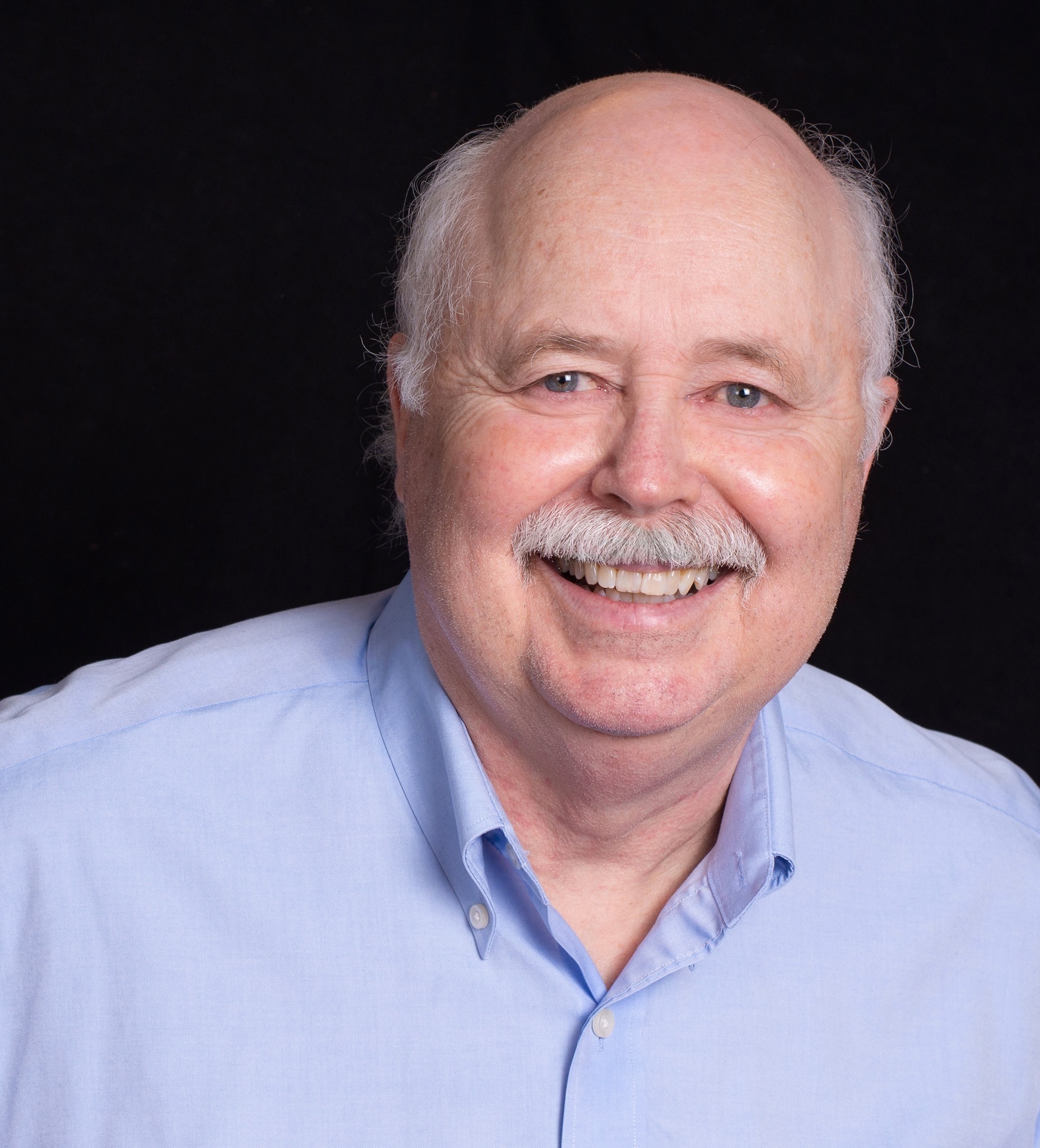
4 Responses
Whoa. Well done.
Thanks Janice!
Thanks Mark,
My introduction and growth in music taste is similar to yours, but then we are not that far apart in age. And where I do really like the blues, my interests have tended to branch out more to bluegrass. I had the good fortune to be in the San Francisco Bay area during some of its most exciting musical times: 1967-1972. I saw Hendrix, B.B. King and the Cream in some of their most famous gigs at the Monterey Pop Festival, Fillmore Auditorium, Avalon Ballroom and Winterland. I do a “Richard’s musical pick of the day” on my Facebook page, and you can find my own tribute to B.B. King there, posted within the last few days. Robert Johnson certainly is the father of blues in America, like Bill Monroe is the father of bluegrass. All good American root music.
Richard
You are welcome Richard! Awesome that you got to see those great artists and groups live back in the day. We have certainly lived through some interesting times! Will check out your tribute to BB! L, Mark